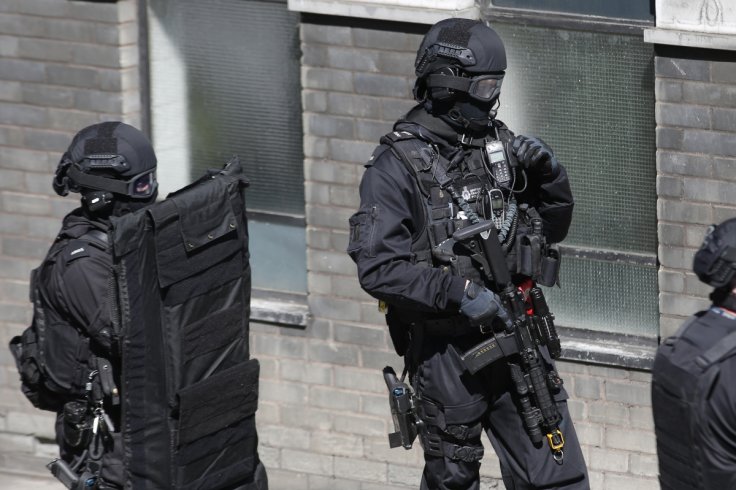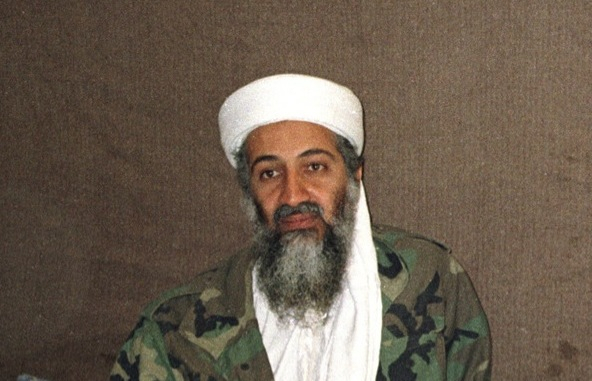The return of infamous terror convict Adel Abdel Bary to Britain has raised vexing questions. Abdel Bary, who was spokesman for al-Qaeda, was sentenced to 25 years in prison in the United States for a role in the 1998 bombings that killed more than 220 people in Kenya and Tanzania.
That conviction of the close associate of Osama Bin Laden was in 2015. However, in a quirk of destiny Abdel Bary was freed just five years later, after the court considered his years in prison as an undertrial. The 60-year-old's speedy release has thus posed thorny questions for both the UK and the US.
Reports say the UK is asking the US to keep Abdel Bary in that country, but that request will be turned down in all likelihood. The US holds the view that Abdel Bary has completed his prison term, and must be allowed to join his family in the UK.

Legal loopholes aside, the moral question is if joining families is an option for the hundreds of people who were killed by his dreaded outfit. Obviously not. But the perpetrators are treated with kid gloves -- that's what many in the UK are worried about.
Refugee in 1990, Terror Cell Leader in 1998
Sources in Whitehall anonymously told the Sun: "This is not someone who will simply just be walking the streets of Britain again. We are very alive to the risk involved in his potential return."
Is Britain indeed a great place for terrorists and would-be terrorists to thrive and flourish? Many a time has a terrorist carried out attacks in the UK months or years after being let off by the intelligence agencies on the benefit of doubt. Abdel Bary's case presents the same dilemma. There's no legal provision to stop his return to the country. There's also little chance of putting in place a temporary exclusion order limiting his freedoms.
Maybe it's time for the UK to look at tightening laws in order to limit exposure to terrorists and stop terror attacks. Bary's case is striking. He came to the UK as a refugee from Egypt in 1990, claiming persecution in his home country.
In just eight years, Abdel Bary became a seasoned jihadist. In 1998, he became the London cell leader of Egyptian Islamic Jihad (EIJ), according to the Sun. This outfit merged with al-Qaeda in 1998, and Abdel Bary became the spokesman for Bin Laden.

He was tasked with handling Laden's media information office, spreading propaganda, providing cover for al-Qaeda's military activities and handling terror recruitment, disbursement of funds and procurement of equipment.
That's not a silly set of charges. Yet, the man who was part of some of the most heinous terror strikes in history is set to walk the streets of London as a free man.
It Runs in the Family
There would be the usual claims of clemency, and arguments that the criminal might have reformed. Not in his case by the looks of it. His son, Abdel-Majed Abdel Bary, is an operative of the Islamic State of Iraq and Syria (Isis). He travelled to Syria in 2013 to fight alongside the terrorists of Abu Bakr al-Baghdadi. He was arrested in Spain this year as he was returning. He is in prison in the UK. The junior Abdel Bary became in instant sensation in the jihadi circles afrer he appeared in an ISIS video holding the severed head of an Assad regime soldier.
It remains to be seen how the UK is going to deal with the hot button issue.
Wonder if this sort of dilemma would exist in an average Asian country. Will it even happen in the so-called quasi-functional nation states? Or in any other country that's serious about national security.
Smiling on Terror a Liberal Choice?
Is the UK's security apparatus hamstrung in the absence of stricter laws? Or is it a deliberate, liberal choice to give the benefit of doubt until the bomb goes off?
Singapore Home Minister K Shanmugam had raised this issue some years ago. He said the legal tools available to UK's security agencies are "relatively limited" owing to the sensitivities around the extension of state powers.
"Britain has long allowed extremist preachers who have poisoned many Muslims, and Britain did so under the framework of freedom of speech," Shanmugam told the Channel News Asia.
Beyond that, even in cases with tell-tale signs of impending strike, UK's security agencies have let off would-be attackers. There have been many such instances.
In June 2017, terrorists drove a hired van into pedestrians on the London bridge, killing seven people. A day later, the MI5 came with the abject admission that the Pakistan-born terrorist was indeed known to it. They knew he had plans to go to Syria to wage his holy war and that he had appeared at least twice at events held by ultra hardline preachers.

This terrorist's spiritual guru was arrested in 2014 for terror links. His outfit, al-Muhajiroun, had links to al–Qaeda and he was deemed as one of the preachers who had influenced the killing of British soldier Lee Rigby.
Endless Mistakes?
Another example is Salman Abedi, the suicide bomber who killed 22 people at the Ariana Grande concert in Manchester. He had also been clearly flagged for terror suspicion. People had called anti-terrorism hotline alerting police that this young man had openly expressed support for terrorism and boasted that he was okay with "being a suicide bomber. Records showed he had recently returned from Libya.
Yet he was allowed to go free, and allowed to carry out a terror attack.
Another terrorist who was treated well by the MI5 was Khalid Masood, UK parliament attacker. The MI5 had investigated him in 2010, treating him as a "peripheral figure". His associates were later convicted of plotting a bomb attack on an Army base in Luton.
Yet the system was too powerless to stop him from launching the attack.
Some lily-livered way of fighting terror?
(The author is Managing Editor at International Business Times. Views are personal. j.jacob@ibtimes.co.in]








